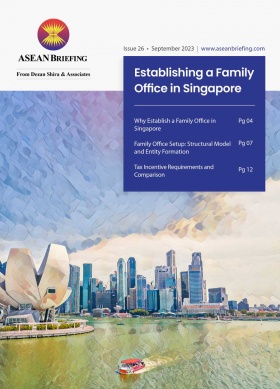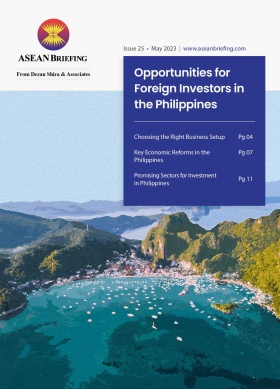Malaysia’s Budget 2024: Impact for Business
Malaysia’s government tabled its 2024 budget in mid-October in what was slated as the largest in the nation’s history with 303 billion ringgit (US$64.7 billion) being allocated. For the government to meet its fiscal responsibilities and reduce the deficit to 4.3 percent, budget 2024 has introduced several structural changes to Malaysia’s tax system which will impact businesses and individuals. This includes the introduction of a capital gains tax and the increase in service tax.
In addition, the government has confirmed it will implement e-invoicing from August 1, 2024, and the global minimum tax in 2025.
Key highlights of Malaysia’s budget 2024
Implementation of e-invoicing
Taxpayers with an annual turnover of over 100 million ringgit (US$21.4 million) will have to implement e-invoicing from August 1, 2024. Taxpayers in other income categories will have to comply with the new rules by July 1, 2025.
Service tax rate increase
The service tax rate will be increased from six to eight percent. However, the service tax rate for food, beverages, and telecommunications services will remain at six percent.
High-value goods tax
Luxury items such as watches, and jewelry will be subject to a high-value goods tax with rates ranging from five to 10 percent.
Capital gains tax on unlisted shares
A capital gains tax of 10 percent will be imposed on the disposal of unlisted local company shares on net gains or two percent of gross sales from March 1, 2024.
Implementation of the global minimum tax
The government will implement the global minimum tax under Pillar 2 of the Base Erosion and Profit Shifting (BEPS) 2.0. The second pillar establishes a global minimum corporate tax rate of 15 percent.
It does not stop countries from engaging in tax competition but sets limits on their ability to do so to prevent a “race to the bottom”. The new minimum tax rate would apply to multinationals with annual revenues of more than 750 million Euros (US$866 million).Extension of tax incentives for the rental of EVs
The government will extend the tax incentives for the rental of EVs. The government will provide a tax deduction of up to 300,000 ringgit (US$64,221) per vehicle for up to two years, up to the year of assessment 2027.
Incentive for reinvestment under the New Industrial Master Plan
Existing companies that have exhausted their Reinvestment Allowance eligibility period can qualify for a tiered reinvestment incentive. This is in the form of an investment tax allowance of 60 percent set-off against 70 percent of statutory income, or 100 percent set-off against 100 percent of statutory income.
Tax incentive for global services hub
A global services hub tax incentive ranging between five and 10 percent (based on an outcome-based approach) for businesses that undertake the following activities:
- Strategic business planning;
- Corporate development; or
- Regional profit and loss business unit.
Stamp duty for property ownership by non-citizens
A flat stamp duty rate of four percent is imposed on the instrument of transfer (of immovable properties) executed by foreign companies and non-citizen individuals.
About Us
ASEAN Briefing is produced by Dezan Shira & Associates. The firm assists foreign investors throughout Asia and maintains offices throughout ASEAN, including in Singapore, Hanoi, Ho Chi Minh City, and Da Nang in Vietnam, in addition to Jakarta, in Indonesia. We also have partner firms in Malaysia, the Philippines, and Thailand as well as our practices in China and India. Please contact us at asean@dezshira.com or visit our website at www.dezshira.com.
- Previous Article Indonesia and Australia Sign MoU to Boost EV Collaboration
- Next Article Laos Raises Immediate Excise Tax Rates on Specific Products








